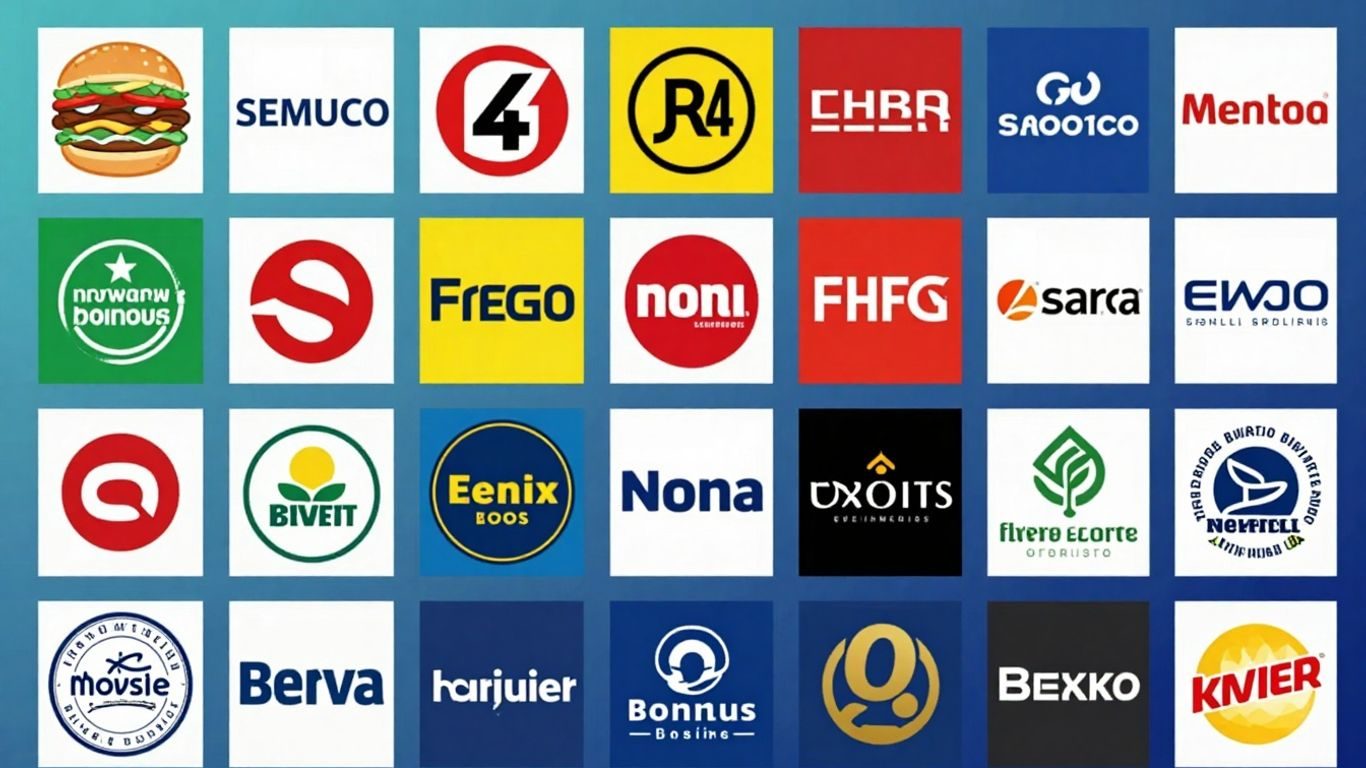Tendințele din industria francizelor în 2025

Franchising is evolving fast, and 2025 is shaping up to be a big year for the industry. From tech advancements to sustainability efforts, businesses are adapting to meet new demands. Whether you’re an investor, entrepreneur, or just curious, understanding these shifts can give you a clearer picture of where the market is headed. Let’s break down the key trends to watch this year.
Key Takeaways
- Southeast Asia and the Middle East are hotspots for franchise growth, driven by emerging markets and increased tourism.
- AI, blockchain, and e-commerce are transforming franchise operations, making them more efficient and customer-focused.
- Sustainability is no longer optional—green practices and eco-friendly models are becoming standard.
- Partnerships between luxury hotels and retail franchises are creating unique opportunities in tourist-heavy locations.
- Local franchise concepts are gaining traction, with cultural adaptation and support for small entrepreneurs leading the way.
Emerging Markets Shaping Franchise Trends
Opportunities in Southeast Asia
Southeast Asia is becoming a magnet for franchise businesses. Countries like Vietnam, Indonesia, and the Philippines are experiencing rapid economic growth and urbanization, making them ripe for franchise opportunities. The region’s young and growing middle class is driving demand for modern retail and dining options. Franchises offering quick-service restaurants, education, and health services are particularly well-positioned to succeed here.
Key factors to consider when entering Southeast Asia:
- Understanding local consumer preferences.
- Adapting to diverse cultural and regulatory environments.
- Building partnerships with local operators to navigate market complexities.
Middle Eastern Market Expansion
The Middle East is no longer just about oil wealth—it’s diversifying, and franchises are benefiting big time. With countries like Saudi Arabia and the UAE investing heavily in tourism and infrastructure, the region offers a fertile ground for franchises in sectors like hospitality, fitness, and retail. Government initiatives to boost entrepreneurship and foreign investment also make it easier for international brands to enter these markets.
Market Snapshot:
| Country | Key Franchise Sectors | Growth Drivers |
|---|---|---|
| UAE | Food & Beverage, Retail | Tourism, Expat Population |
| Saudi Arabia | Fitness, Entertainment | Vision 2030, Urban Development |
| Qatar | Luxury, Education | World Cup Legacy Projects |
Tourism-Driven Franchise Growth
Tourism hotspots are proving to be goldmines for franchise businesses. Whether it’s coffee shops in bustling airports or boutique hotels in scenic locations, franchises are capitalizing on the global travel boom. Regions like Europe, Southeast Asia, and the Caribbean are particularly lucrative for tourism-driven franchises.
Franchises that cater to international travelers—offering recognizable brands and consistent quality—are thriving in these high-traffic areas.
Takeaway for franchise investors:
- Focus on locations with strong tourism infrastructure.
- Offer products or services that appeal to both locals and tourists.
- Ensure operational scalability to handle seasonal demand spikes.
For example, total franchise output is set to grow, with franchise GDP projected to surpass $936.4 billion in 2025. Emerging markets like these are key contributors to this growth.
Technology’s Role in Franchise Evolution

AI and Automation in Franchising
Franchise businesses are increasingly adopting AI-driven tools to improve efficiency and customer experience. Chatbots, for example, are becoming the go-to solution for handling customer inquiries quickly and effectively. These bots can operate 24/7, ensuring no customer query is left unanswered. Beyond customer service, AI is also being used for inventory management, predicting demand, and even optimizing marketing campaigns. It’s all about working smarter, not harder.
Blockchain for Franchise Operations
Blockchain isn’t just about cryptocurrency anymore. In franchising, it’s being explored for secure and transparent record-keeping. Think about contracts, royalty payments, or supply chain data—all stored in a way that’s tamper-proof. This could reduce disputes and build trust between franchisors and franchisees. Plus, blockchain can also help track product origins, which is a win for businesses focusing on sustainability.
E-commerce Integration in Franchise Models
With online shopping at an all-time high, franchises are finding ways to blend e-commerce into their traditional models. Many are setting up online stores to complement their physical locations. This hybrid approach allows them to reach customers who prefer shopping from home while still driving foot traffic to their stores. For example, click-and-collect services have become hugely popular, letting customers order online and pick up in-store.
Sustainability as a Franchise Imperative
Eco-Friendly Business Models
Franchises today are stepping up their game when it comes to sustainability. Consumers are demanding greener practices, and businesses are listening. Many franchises are incorporating eco-friendly solutions into their operations, from energy-efficient lighting to reducing single-use plastics. For instance, some fast-food chains now use compostable packaging, while others are switching to electric delivery vehicles.
Here are a few ways franchises are adopting eco-friendly models:
- Installing solar panels to power operations.
- Offering discounts to customers who bring reusable containers.
- Partnering with local farms to source organic and sustainable ingredients.
Sustainable Supply Chains
A sustainable supply chain isn’t just a trend—it’s becoming a necessity. Franchises are rethinking how they source materials and manage logistics to minimize their environmental impact. This means working with ethical suppliers, reducing transportation emissions, and cutting down on waste.
Example Table: Franchise Supply Chain Adjustments
| Adjustment | Impact |
|---|---|
| Switching to local suppliers | Reduces carbon emissions from transport |
| Using recycled materials | Cuts down on resource consumption |
| Optimizing delivery routes | Saves fuel and reduces pollution |
Consumer Demand for Green Practices
Customers are more eco-conscious than ever. They want to support businesses that align with their values, especially when it comes to the environment. Franchises that fail to adapt risk losing market share to competitors who embrace sustainability.
Some consumer-driven trends include:
- Increased preference for brands with transparent sustainability goals.
- Higher demand for plant-based menu options in food franchises.
- Growing interest in zero-waste stores and refill stations.
Sustainability isn’t just a buzzword anymore—it’s a core part of doing business in 2025. Franchises that prioritize eco-friendly practices are not only helping the planet but also securing their future in a competitive market.
For instance, the home service trends for 2025 show that sustainability is transforming industries, proving that going green is no longer optional but essential.
Hospitality and Retail Synergies in Franchising
Luxury Hotels and Franchise Partnerships
The intersection of luxury hospitality and franchising has opened up exciting opportunities. High-end hotel chains are increasingly partnering with retail franchises to create unique guest experiences. For example:
- Pop-up luxury boutiques within hotel lobbies.
- Co-branded loyalty programs that reward both hotel stays and retail purchases.
- Exclusive shopping packages for guests staying at premium suites.
Such partnerships not only enhance brand visibility but also provide an integrated experience for affluent consumers.
Retail-Franchise Integration
Retail franchises have started blending into hospitality spaces, especially in areas with high tourist traffic. This trend includes:
- Cafés and fast-food outlets operating within shopping malls connected to hotels.
- Branded retail stores offering exclusive products tied to local culture.
- Collaboration between retail brands and hospitality providers to host seasonal events.
Retail-franchise integration is reshaping how consumers interact with both industries, making convenience a top priority.
Tourist-Centric Franchise Locations
Tourism hotspots are becoming prime real estate for franchise expansion. Franchises targeting tourists often focus on:
- Offering localized products or services tailored to the region.
- Setting up in high-traffic areas like airports, train stations, and popular landmarks.
- Collaborating with local tour operators to attract visitors.
By focusing on tourist-centric locations, franchises can tap into a steady flow of international and domestic travelers, ensuring consistent revenues year-round.
The Rise of Local Franchise Concepts
Success Stories of Local Brands
One of the most exciting shifts in franchising is the rise of local brands making their mark. Brands like "5 to Go" and "French Revolution" have shown how local businesses can scale successfully through franchising. These companies started small but have grown into household names, proving that understanding local markets can be a huge advantage. Other examples include Treevi and Petru, which have embraced franchising to expand their reach without losing their unique identity.
Cultural Adaptation in Franchising
Adapting to local culture isn’t just smart; it’s necessary. Franchises that succeed often tweak their offerings to align with local tastes, traditions, and values. For instance:
- Menus adjusted to regional food preferences.
- Store designs incorporating local aesthetics.
- Marketing campaigns using culturally relevant messaging.
This approach not only attracts customers but also builds trust and loyalty, giving franchises a competitive edge in diverse markets.
Support for Small Entrepreneurs
Franchising isn’t just for big corporations. It’s increasingly becoming a way for small entrepreneurs to thrive. Many local franchise concepts offer affordable entry points, making it easier for aspiring business owners to get started. Key benefits include:
- Lower upfront costs compared to traditional franchises.
- Access to established brand recognition.
- Training and ongoing support from the franchisor.
"Franchising is no longer just about global giants; it’s also about empowering small businesses to grow sustainably."
Global Franchise Events and Networking

Key Franchise Expos in 2025
Attending franchise expos is one of the best ways to explore new opportunities and meet like-minded professionals. In 2025, the calendar is packed with events across the globe. Here are some highlights:
- China Franchise Expo, Beijing: March 14–16, 2025, at the National Convention Center. A must-visit for those eyeing the Asian market.
- The Franchise Expo, Vancouver: April 5–6, 2025, at the Vancouver Convention Center East. A hotspot for North American franchise trends.
- Franchise Expo Paris: March 15–17, 2025, at Paris Expo Porte de Versailles. Perfect for those looking to tap into European markets.
These expos are more than just exhibitions; they’re platforms to learn, network, and discover the latest innovations in franchising.
Workshops and Training Opportunities
Workshops and training sessions at these events provide actionable insights and real-world strategies. Some common topics include:
- How to identify the right franchise for your goals.
- Tips for negotiating franchise contracts.
- Leveraging technology to streamline operations.
Participating in these sessions can sharpen your skills and help you adapt to the dynamic franchise landscape.
International Collaboration in Franchising
Globalization has made cross-border franchising more accessible than ever. Events like these foster collaboration, enabling:
- Partnerships between international brands and local entrepreneurs.
- Sharing of best practices across markets.
- Access to resources for global expansion.
"Networking at these events often leads to partnerships that redefine the franchise game."
Investment Trends in the Franchise Sector
High-Growth Franchise Industries
Certain sectors are booming in 2025, making them attractive for franchise investments. Health and wellness franchises are leading the charge, as consumers prioritize self-care and fitness. Food delivery services and cloud kitchens are also thriving, driven by convenience and changing dining habits. Lastly, education-focused franchises, especially those offering online and hybrid learning models, are experiencing rapid growth.
Here’s a quick breakdown of the top-performing franchise sectors:
| Industry | Key Drivers |
|---|---|
| Health & Wellness | Rising demand for fitness & self-care |
| Food Delivery | Convenience and urban lifestyles |
| Education | Growth of online and hybrid learning |
Investor Interest in Emerging Markets
Emerging markets are catching the eye of global investors. Countries in Southeast Asia, Africa, and parts of Eastern Europe are becoming hotspots for franchise expansion. These regions offer lower entry costs, growing middle-class populations, and untapped potential for various industries.
Key reasons why investors are targeting emerging markets:
- Affordable labor and operational costs
- Increasing urbanization and disposable incomes
- Government incentives for foreign investments
Investors are realizing that entering these markets early can provide a significant competitive edge.
Franchise Financing Innovations
Franchise financing is evolving, making it easier for entrepreneurs to get started. Crowdlending platforms are becoming popular, allowing multiple investors to fund new ventures. Additionally, some franchises now offer in-house financing, reducing the reliance on traditional banks.
Here are a few innovative financing options:
- Crowdlending platforms for collective funding.
- Franchisor-backed loans with flexible terms.
- Partnerships with fintech companies for quick approvals.
These trends are reshaping how franchises are funded, opening doors for a wider range of investors and entrepreneurs.
Wrapping Up: The Future of Franchising
As we look ahead to 2025, the franchise industry is clearly evolving in exciting ways. From emerging markets to innovative business models, there’s a lot happening. Whether you’re a seasoned entrepreneur or just starting out, the opportunities are there if you’re willing to adapt and stay informed. The key takeaway? Franchising continues to be a dynamic and accessible path for growth, offering something for everyone. So, keep an eye on the trends, stay flexible, and who knows? This might just be the year you take the leap into something new.
Frequently Asked Questions
What are the top emerging markets for franchises in 2025?
Southeast Asia, the Middle East, and regions driven by tourism are expected to lead franchise growth due to their expanding economies and increasing consumer demand.
How is technology shaping the future of franchising?
Technologies like AI, automation, blockchain, and e-commerce are transforming franchise operations, making them more efficient and accessible to a wider audience.
Why is sustainability important in franchising?
Consumers are increasingly demanding eco-friendly practices. Franchises adopting green operations, sustainable supply chains, and eco-conscious models are likely to attract more customers.
What are some key franchise events to attend in 2025?
Major events include the China Franchise Expo in Beijing, the American Franchise Expo in Texas, and the Paris Franchise Expo, offering networking and learning opportunities.
What trends are driving investments in the franchise sector?
High-growth industries, emerging markets, and innovations in franchise financing are attracting significant investor interest.
How are local franchise concepts gaining popularity?
Local brands are succeeding by adapting to cultural preferences and receiving support from initiatives aimed at helping small entrepreneurs grow their businesses.











